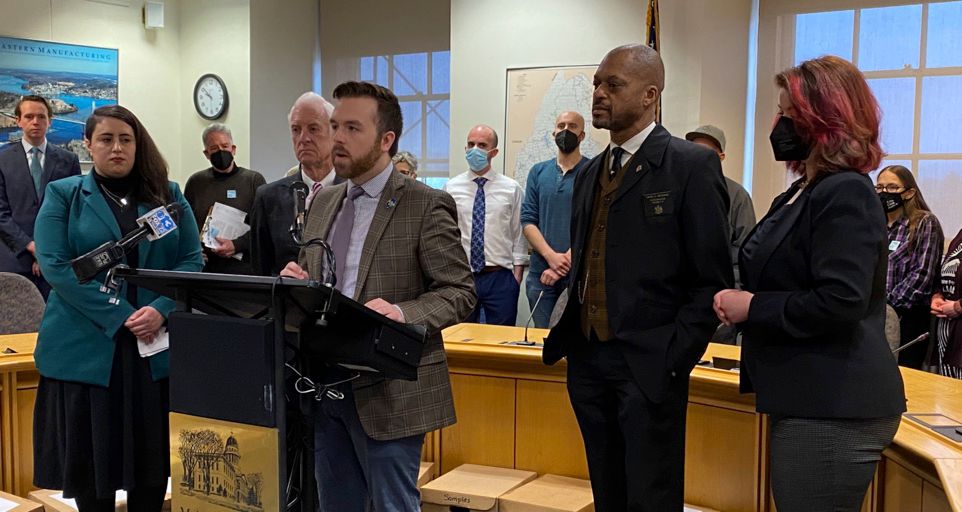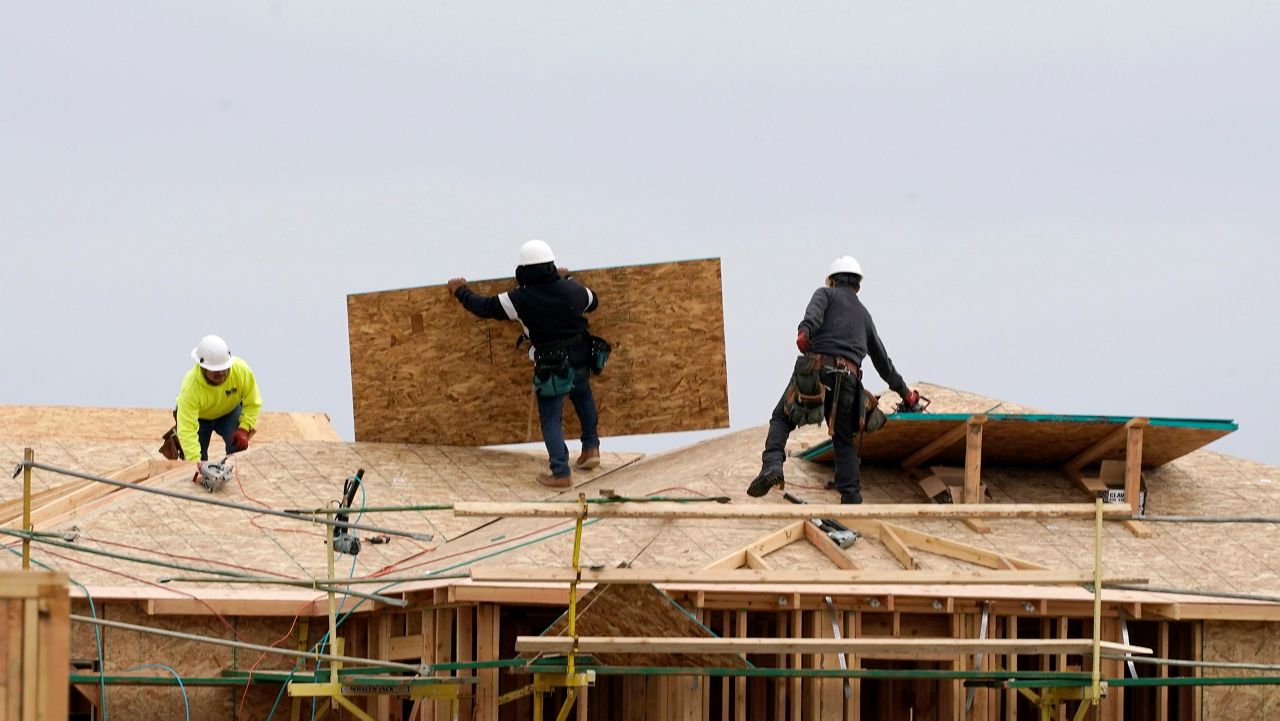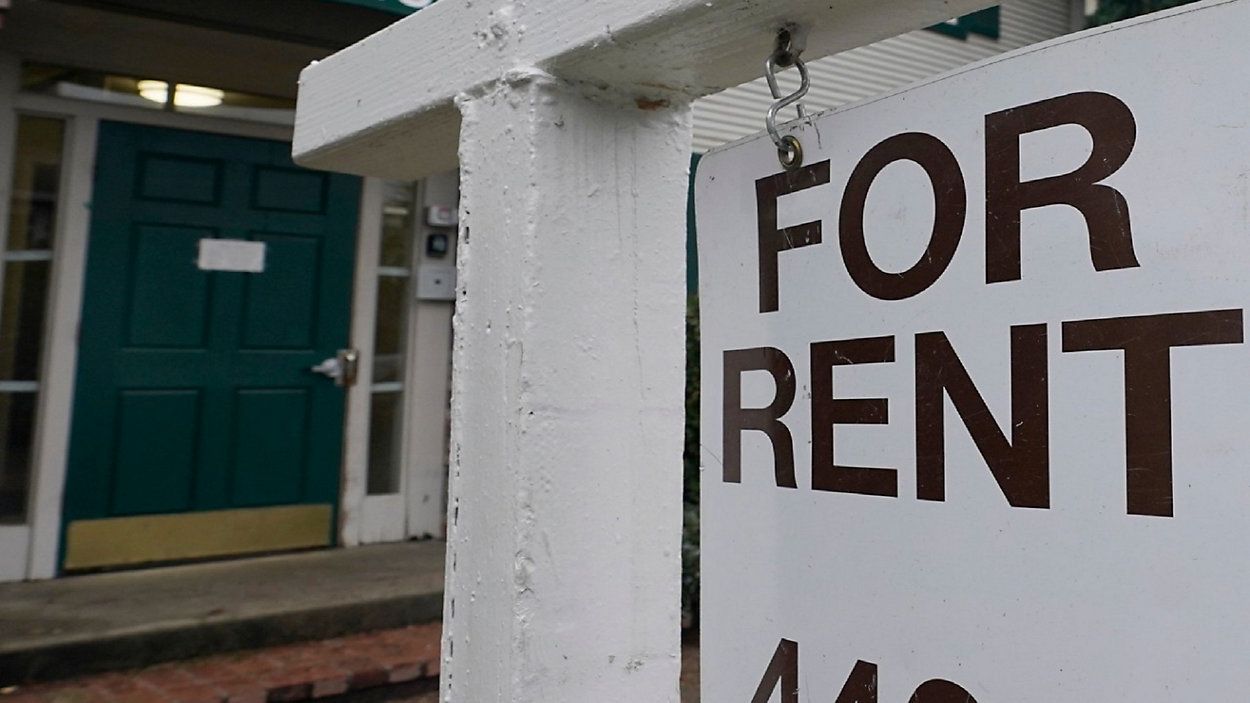A commission’s recommendations for how Maine can make it easier to build more affordable housing are at the heart of two new bills about to go before the legislature’s Labor and Housing Committee.
While members of the commision understand the urgency to find new solutions to Maine’s affordable-housing crisis, some lawmakers are concerned the bills might appear heavy-handed to municipal leaders.
Neither bill is finished yet, but they will be based on recommendations provided by a 15-person commission established to study the role of regulations in creating affordable housing. The commission presented its findings to the Labor and Housing Committee in a virtual conference on Jan. 10.

House Speaker Ryan Fecteau (D-Biddeford), co-chaired the commission, along with Sen. Craig Hickman (D-Winthrop). The committee’s other members included affordable housing advocates, representatives of the state’s property development community, legislators, a representative from Gov. Janet Mills’ office, and Kate Dufour, a legislative advocate for the Maine Municipal Association.
The lack of affordable homes is personal for Fecteau, who grew up in a single-parent household in an affordable housing complex in Saco. During a recent interview, Fecteau said the lack of affordable housing has become an even greater issue in the past few years.
“This is a huge challenge for Maine people across the state,” he said.
The new bills are An Act To Implement the Recommendations of the Commission To Increase Housing Opportunities in Maine by Studying Zoning and Land Use Restrictions, and An Act To Help Alleviate Maine's Housing Shortage through Changes to Zoning Laws.
The commission’s report includes nine recommendations, the result of seven separate meetings spent studying the issue of affordable housing statewide. The recommendations include:
Eliminating single-family zoning restrictions in residential areas, allowing up to four residential units on all lots.
Prohibiting municipal growth caps.
Amending Maine’s Fair Housing Act to forbid municipalities from using terms such as “character,” “overcrowding of land” and “undue concentration of population” as justification for blocking affordable housing projects.
Creating a state-level appeals board to review denials of affordable housing projects at the local level.
The recommendations also include establishing financial incentives for communities that opt to create more affordable housing, though Fecteau said during the Jan. 10 conference that the sources of funding for those incentives had not been identified yet.
The commission ultimately voted to approve all the recommendations, but discussions on Jan. 10 revealed early concerns about the recommendations’ potential impact on municipal authority.
“What we’re proposing is to usurp local control,” criticized Rep. Gary Drinkwater (R-Milford), a member of the Labor and Housing Committee that will review the bills once drafted.
In response, Hickman pointed out that laws protecting local control do not prevent the state from asserting its authority.
“(Local control) is not absolute. The constitution makes that clear,” he said.
Fecteau, at the time, insisted that the intent is to work with municipalities, and stressed the incentives the commission recommended are also part of that.
“This was a program creating more of a carrot than a stick,” he said.
During an interview with Spectrum News, Fecteau said he will work with municipalities to maintain local control, especially if it yields more affordable housing.
“More important to me than anything else is housing, and making sure that everyone in this state can afford a place to call home,” he said.
Fecteau added that he won’t support localized efforts to block affordable housing, such as 60-year-old municipal ordinances or arbitrary growth laws blatantly designed to ban construction of new homes.
“Local control for the sake of local control cannot be the enemy of the good,” he said.
Dufour said she, as a commission member working on behalf of the Maine Municipal Association, voted against the ban on growth caps and against establishing an appeals board.
Growth caps, Dufour said, are not by definition designed to stop growth. In many cases, she said, such caps are designed to manage growth while still allowing it in a particular municipality.
“Communities have to have the resources necessary to grow, and growth caps allow municipalities to plan for the future,” she said.
An appeals board, she said, might be too far removed from local issues to be able to fairly evaluate individual projects.
“You can’t just throw five people together and say, ‘OK, you’re going to resolve all the problems in our communities,’” she said.
Despite her concerns, Dufour did acknowledge that state and local officials can work together, citing as an example the Maine State Planning Office overseeing and working with local planning departments for years on various growth-related issues. She noted the housing crisis needs to be addressed at all levels, both local and state, in order to solve the problem.
“It’s important to remember, we got here together, and the only way we can get out of this is together,” she said.
Fecteau said he believes that in the end, Mainers recognize there is a housing crisis, and will want to work with the state to create more affordable homes.
“I think the vast majority of Mainers want to see housing built,” he said.
Once the drafts of both bills are complete, the Legislature will schedule hearings and discussion at the committee level.









